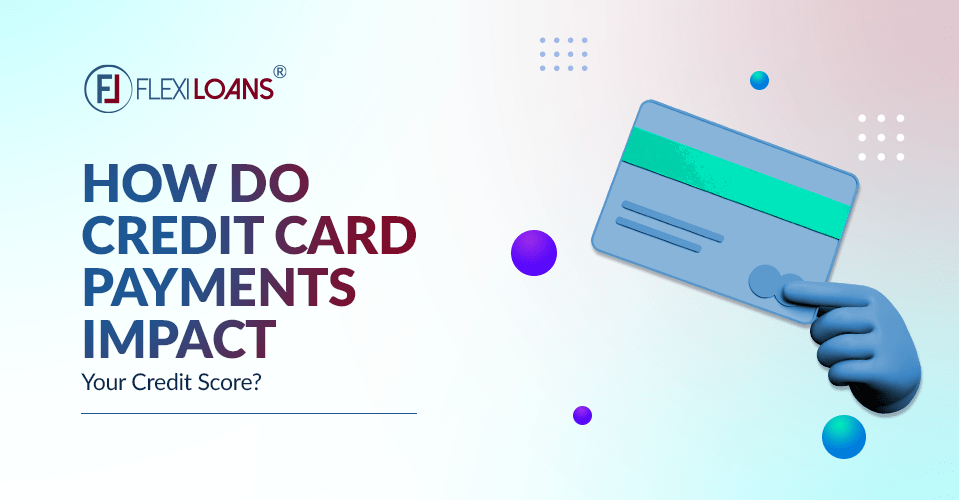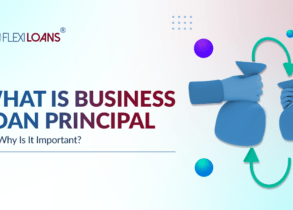Oct 11, 2022
Jul 25, 2025

Introduction
The economy is turning cashless and the dependency on plastic money has been rising drastically. Debit and Credit Cards are used by almost everyone and have become one of the most convenient modes of paying money. Credit cards, especially, offer the choice of buying now and paying later which eases your shopping and payment activities, thus, making your financial activities more flexible.
However, it is very important to use Credit Cards wisely. They have a direct impact on your CIBIL Score which is directly related to availing of loan facilities. If you use your Credit Card in the right manner, you will be able to maintain a good CIBIL Score, thus, more ease in getting loan approvals at a better rate of interest. We shall discuss in detail the impact of Credit cards on credit scores.
What is a Credit Card Limit and What is a Credit Card Overlimit?
Your credit card limit is the maximum amount you can spend with your card at any given moment. This limitation is in place to prevent people from getting into unmanageable levels of debt. Credit limits are established based on several criteria, including but not limited to, a borrower’s income, credit history, creditworthiness, etc.
Typically, a credit card’s limit is established when the card is first issued, but it may be increased or decreased over time based on the cardholder’s payment history, credit score for credit cards, income bracket, etc.
A credit over-limit occurs when a cardholder incurs charges over their available credit. Every credit card holder has the option of going above their credit limit. You may choose to either abort the transaction that exceeds your credit limit or proceed with it over the limit.
Requirements for Credit Card Applications Based on CIBIL Minimum Score
Your CIBIL score for your credit card needs to be somewhere between 300 and 900. Anywhere between 700 and 850 could be considered an acceptable CIBIL score for smooth loan approvals at a good rate of interest. The majority of financial institutions analyze a customer’s credit card usage and accept their credit card application if they have a CIBIL score between 700 and 750.
Does Credit Card Affect Credit Score?
The following conditions or practices affect your CIBIL score on credit card:
Your credit card’s payments history
Your payment history is the single most important component in determining your credit score. A significant portion of your credit score (almost 35%) depends on this. Make regular payments to your credit card bills to keep your credit history spotless. However, if you don’t pay your credit card bill on time, you’ll be hit with higher interest rates and a late payment fee—along with the additional blow of a slashed CIBIL score.
Excessive use of credit limit
Excessive credit use might harm your CIBIL score if you use more than 70 or 80 percent of your available credit at any given time. The health and growth of your credit rating depend heavily on your timely repayment of debts. You will see a negative impact on your CIBIL score as it will decrease after you miss even one EMI payment.
For instance, when someone has a high utilization rate, it shows they can’t keep their expenditures in check. Credit limits are also determined by an individual’s income at several credit card issuers. Too much credit usage is a red flag for financial institutions, who may determine that you are carrying too much debt.
Not paying the minimum amount due
Credit card holders should always pay at least the minimum payment due, if not the entire balance, to maintain a steady CIBIL score. Remember that making only the minimum payment (also known as MAD) on your credit card balances won’t have any negative effect on your ability to make future payments.
Making MAD is not a default, but interest and other fees, if applicable, will accrue on the outstanding balance. A credit card is a wonderful time-saving tool since it enables you to buy everything you want immediately and pay no interest for up to 45 days for it. Making prompt and complete repayments is the sole concern one needs to have to avoid interest and fees.
Maxing up your credit even if it was avoidable
Calculating your credit utilization ratio (CUR) each month can give you an idea of how much you are spending compared to your available credit. Let’s say you have a Rs 1 lakh credit limit but only managed to spend Rs 90,000. Your CUR will be 90% in this scenario.
The perception of a borrower with a high CUR is one of excessive credit consumption. Your credit rating will drop as a result. Temporary overspending on essentials is acceptable in times of need or for major life events like weddings or international travel, but you shouldn’t make it a habit.
Maintain a minimum of 30% CUR. If you have bills to pay, you should pay them in full and on time every month. It’s not worth the incentives and savings if you have to pay interest on your regular purchases. If you pay on time and in full, you can increase your credit limit and get lower interest rates on loans.
Missing payments
Avoid missing payments by setting up automatic withdrawals, even if only for the minimum amount. The term “automated payment” refers to the practice of setting up a recurring electronic funds transfer from a credit card account to a supplier, biller, or merchant. The biller will automatically collect the payment owed by the agreed-upon payment terms.
Filling out a bunch of credit applications at once
Users should avoid making numerous credit applications at once to take advantage of the offers, discounts, and grace periods on each credit card. A lower credit score is a common outcome of excessively applying for loans. You shouldn’t have more than three credit cards at any given time.
Reaching credit limit
Once a person reaches their credit limit, further credit card purchases will be rejected. Be aware of your credit card’s limit and monitor your balances regularly to avoid being caught off guard if you charge more than you can afford to pay off in full before the end of the billing cycle.
The Bottom Line
Changing your approach to money is crucial if you want to raise your credit card CIBIL score. Avoid missing payments on your credit card bills by reviewing your statements periodically. Keeping up with bill payments is one surefire way to improve one’s credit standing. Business loans, micro, small, and medium enterprise loans, collateral-free business loans, term loans, small business loans, etc., are just a few of the top loan services Flexiloans offers to budding entrepreneurs and small businesses. Visit our website today to know about the eligibility for business loan and the interest rate for business loans.
If you’re looking for more informational blog posts like this one, check out the ones we have here at Flexi Loans.







